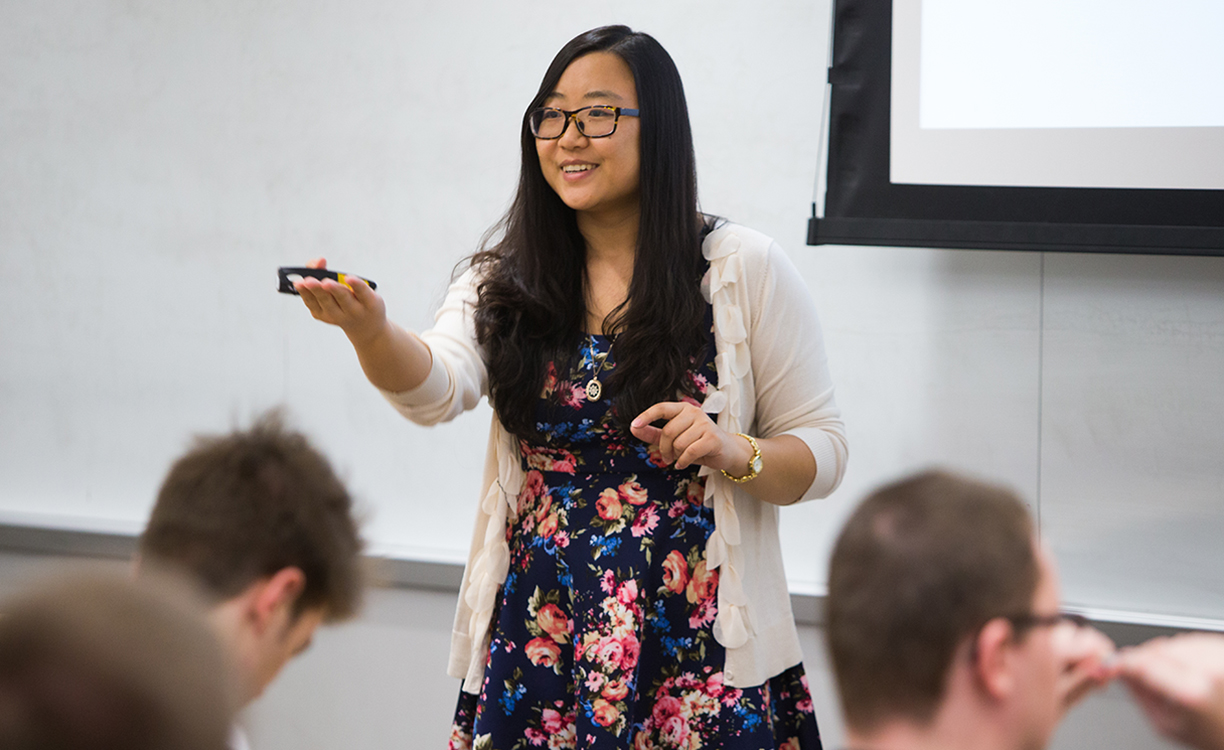
Dr. Yan Shi, associate professor of computer science and software engineering joined the University of Wisconsin-Platteville in 2011. Shi’s interest in computer science and software engineering began when she was earning her bachelor’s degree at the University of Science and Technology in Beijing.
“I started my undergraduate as an electrical engineering major in control track. After my undergraduate study, I joined a research lab in software cybernetics as a master’s student,” she said. “My main research focus was applying control theories to software testing process. This experience made me become more and more interested in software engineering and computer science. After I graduated, I applied for a Ph.D. program (University of Texas at Dallas) in computer science with a focus on software engineering.”
Outside of the classroom, Shi is an avid traveler. “I spend most of my breaks traveling around the world. I have visited more than a dozen countries in the past decade and plan to keep the number increasing in the future,” she said.
Your research interests include data engineering in wireless communications and applying different artificial intelligence concepts to the software development process. Are you working on any research projects?
Currently, I am working on several topics related to data mining in social networks. To be more specific, how to design better crowd-sourcing mechanisms in different application scenarios.
The fields of computer science and software engineering are male dominated. Why is it important to introduce these career paths to female students of all ages?
It is important to break the gender stereotype in computer science and software engineering fields. I often hear people say computer science needs strong logic thinking and problem-solving skills and that is why we see more male students than female students. I have to argue that is not entirely true. Although logic thinking is critical for computer science and software engineering, both male and female can be good at it. It just takes training. Female students should not be intimidated by the gender stereotype and give up on certain opportunities before even trying. Every individual has his/her own traits despite of gender. One should find the best path based on those traits instead of social stereotypes.
What do you hope students take away from your classes?
First of all, I hope all students will understand and master all course contents covered in the class. But more importantly, critical thinking and the ability to solve a new problem on their own is the ultimate goal of teaching and learning. Software industry is an ever-evolving industry. New technologies are coming out every year or even month. Specific technologies students learn at school will expire in a few years. However, the problem-solving methodology and critical thinking will never expire.
What is one of your proudest accomplishments during your time at UW-Platteville?
My proudest moments are always when students come to me and tell me what they learned in class actually benefits in their life. I still remember the joy I had a few years ago when a senior student stopped by my office and said, “Dr. Shi, I just got an offer from Google. It was a really tough interview. I had six rounds of interviews in one day. But I have to tell you every single question they asked were covered in your data structure and software engineering courses!”
What qualities have you seen in UW-Platteville students that have impressed you the most?
I really love our students. I think they are the best engineering students. Most of them are really down-to-earth. They are serious about their study. This is reflected in their class participation and after class assignments.
For example, due to COVID-19, the second half of this semester was online delivery. I was a little bit worried about my course projects since it was a big semester-long group project. Before we left campus, I asked my students to add me in their project group chat. To my surprise, my phone would never stop sending me chatting notifications throughout the day, from morning to late night, for the rest of the semester. This shows how proactive our students are in terms of learning.